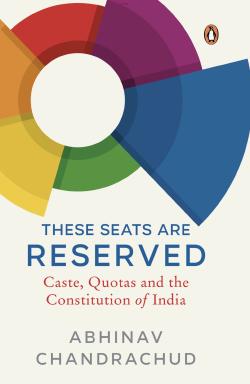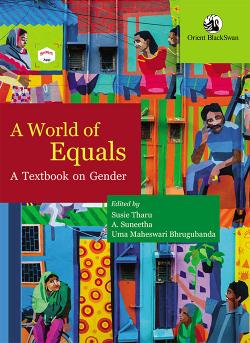Library
List of books I have read or currently reading, and the notes from those books. Considering I have quite a lot of books, this is very much work in progress. This library currently contains
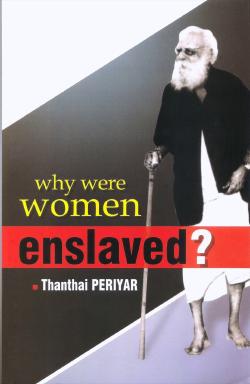
Why Were Women Enslaved?
by Periyar, Meena Kandasamy (Translator)A must read Easy Read Short Read
Will rats be liberated because of cats? Will goats and cocks be liberated because of foxes? Will the wealth of Indians increase because of the British? Will the non-Brahmins attain equality because of the Brahmins? If one thinks over these questions, one can realize the truth.
Even if liberation is somehow attained in these above cases, one firmly believe that women will never attain liberation because of men.
Women shouldn’t forget the fact that the word ‘masculinity’ is itself internationally used in a manner demeaning to women. Women should remember that as long as ‘masculinity’ exists in the world, ‘femininity’ wouldn’t be respected. As long as ‘masculinity’ exists in the world, the enslavement of women will keep increasing. Unless women destroy the concept of ‘masculinity’, it is certain that they will not attain liberation. - Thanthai Periyar (Page 62)
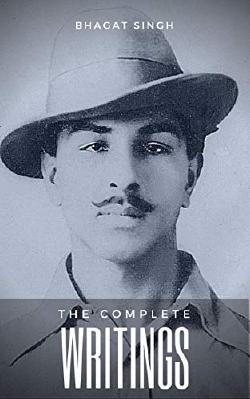
Why I Am An Atheist
by Bhagat SinghA must read Not Very Challenging Short Read
Bhagat Singh was an Indian socialist considered to be one of the most influential revolutionaries of the Indian independence movement. He is often referred to as “Shaheed Bhagat Singh”, the word “Shaheed” meaning “martyr” in a number of South Asian and Middle Eastern languages. Born into a Sikh family which had earlier been involved in revolutionary activities against the British Raj, as a teenager Singh studied European revolutionary movements and was attracted to anarchist and Marxist ideologies. He became involved in numerous revolutionary organisations, and quickly rose through the ranks of the Hindustan Republican Association (HRA) to become one of its main leaders, eventually changing its name to the Hindustan Socialist Republican Association (HSRA) in 1928.
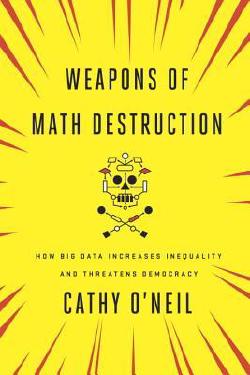
Weapons of Math Destruction: How Big Data Increases Inequality and Threatens Democracy
by Cathy O'NeilA must read Challenging Read Long Read
We live in the age of the algorithm. Increasingly, the decisions that affect our lives–where we go to school, whether we can get a job or a loan, how much we pay for health insurance–are being made not by humans, but by machines. In theory, this should lead to greater fairness: Everyone is judged according to the same rules. But as mathematician and data scientist Cathy O’Neil reveals, the mathematical models being used today are unregulated and uncontestable, even when they’re wrong. Most troubling, they reinforce discrimination–propping up the lucky, punishing the downtrodden, and undermining our democracy in the process.
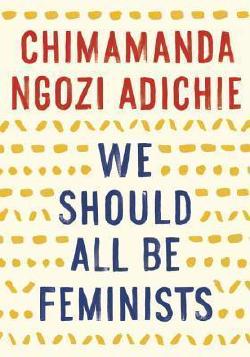
We Should All Be Feminists
by Chimamanda Ngozi AdichieA must read Easy Read Short Read
What does “feminism” mean today? That is the question at the heart of We Should All Be Feminists, a personal, eloquently-argued essay—adapted from her much-viewed TEDx talk of the same name—by Chimamanda Ngozi Adichie, the award-winning author of Americanah and Half of a Yellow Sun.
With humor and levity, here Adichie offers readers a unique definition of feminism for the twenty-first century—one rooted in inclusion and awareness. She shines a light not only on blatant discrimination, but also the more insidious, institutional behaviors that marginalize women around the world, in order to help readers of all walks of life better understand the often masked realities of sexual politics. Throughout, she draws extensively on her own experiences—in the U.S., in her native Nigeria, and abroad—offering an artfully nuanced explanation of why the gender divide is harmful for women and men, alike.
Argued in the same observant, witty and clever prose that has made Adichie a bestselling novelist, here is one remarkable author’s exploration of what it means to be a woman today—and an of-the-moment rallying cry for why we should all be feminists.
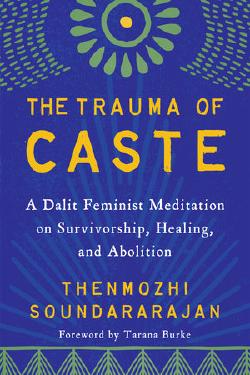
The Trauma of Caste: A Dalit Feminist Meditation on Survivorship, Healing, and Abolition
by Thenmozhi SoundararajanA must read Challenging Read Long Read
For readers of Caste and Radical Dharma, an urgent call to action to end caste apartheid, grounded in Dalit feminist abolition and engaged Buddhism.
“Dalit” is the name that we chose for ourselves when Brahminism declared us “untouchable.” Dalit means broken. Broken by suffering. Broken by caste: the world’s oldest, longest-running dominator system…yet although “Dalit” means broken, it also means resilient.
Despite its ban more than 70 years ago, caste is thriving. Every 15 minutes, a crime is perpetrated against a Dalit person. The average age of death for Dalit women is just 39. And the wreckages of caste are replicated here in the U.S., too—erupting online with rape and death threats, showing up at work, and forcing countless Dalits to live in fear of being outed.
Dalit American activist Thenmozhi Soundararajan puts forth a call to awaken and act, not just for readers in South Asia, but all around the world. She ties Dalit oppression to fights for liberation among Black, Indigenous, Latinx, femme, and Queer communities, examining caste from a feminist, abolitionist, and Dalit Buddhist perspective—and laying bare the grief, trauma, rage, and stolen futures enacted by Brahminical social structures on the caste-oppressed.
Soundararajan’s work includes embodiment exercises, reflections, and meditations to help readers explore their own relationship to caste and marginalization—and to step into their power as healing activists and changemakers. She offers skills for cultivating wellness within dynamics of false separation, sharing how both oppressor and oppressed can heal the wounds of caste and transform collective suffering.
Incisive and urgent, The Trauma of Caste is an activating beacon of healing and liberation, written by one of the world’s most needed voices in the fight to end caste apartheid.

The Toilet Seat
by LathaA must read Easy Read Short Read
Though sex is considered a ‘dirty’ word in Indian society, the indispensable role it plays in our lives cannot be denied. The Toilet Seat takes a good look at how sex is perceived and portrayed in society, the social stigma attached to sex, especially the premarital and extramarital kind, and the perversions that suppression of sex can cause.
The book reflects upon the grey areas in relationships, the hypocrisy of people and the so-called values that bind people in a knot, redefines perceptions, and dispels myths with respect to love, sex and the female orgasm. It also gives valuable suggestions to improve relationships by understanding the sexual needs of partners and talking about them openly.
Well, what does the title of the book The Toilet Seat have to do with all this? Read on to find out
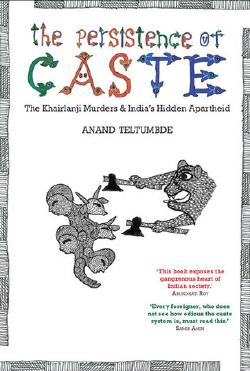
The Persistence of Caste: The Khairlanji Murders and India's Hidden Apartheid
by Anand TeltumbdeA must read Challenging Read Long Read
While the caste system has been formally abolished under the Indian constitution, according to official statistics, every eighteen minutes a crime is committed in India on a member of the dalit caste.
The Persistence of Caste uses the shocking case of “Khairlanji,” the brutal murder of an entire Dalit family in 2006, to explode the myth that caste is a feudal relic, and argues that it has been well assimilated not only by capitalist India, but also Globalising India—spreading out through the diaspora. The author argues that anti-caste activism itself has reflected and reinforced the worst stereotypes, identifying foes and friends in obsolete terms, and that in post-independence India, the authority of Caste has found a new ally—the state and its police.
This shocking and insightful new analysis will not only provide a fascinating introduction into the issue of caste in a globalised world, but will sharpen any readers’ understanding of caste dynamics as they actually exist.
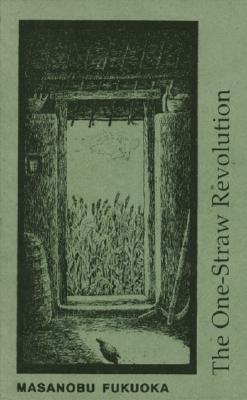
The One-Straw Revolution
by Masanobu FukuokaA must read Not Very Challenging Long Read
Fukuoka demonstrates how the way we look at farming influences the way we look at health, the school, nature, nutrition, spiritual health and life itself. He joins the healing of the land to the process of purifying the human spirit and proposes a way of life and a way of farming in which such healing can take place.
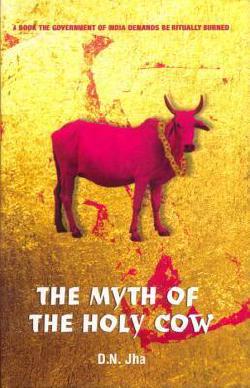
The Myth of the Holy Cow
by D.N JhaA must read Not Very Challenging Short Read
Hugely controversial upon its publication in India, this book has already been banned by the Hyderabad Civil Court and the author’s life has been threatened. Jha argues against the historical sanctity of the cow in India, in an illuminating response to the prevailing attitudes about beef that have been fiercely supported by the current Hindu right-wing government and the fundamentalist groups backing it.
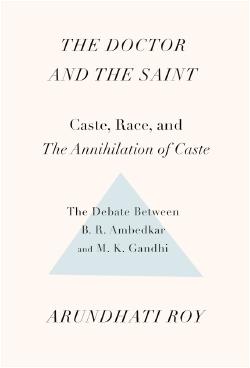
The Doctor and the Saint: The Ambedkar - Gandhi Debate
by Arundhati RoyA must read Not Very Challenging Long Read
To best understand and address the inequality in India today, Arundhati Roy insists we must examine both the political development and influence of M. K. Gandhi and why B. R. Ambedkar’s brilliant challenge to his near-divine status was suppressed by India’s elite. In Roy’s analysis, we see that Ambedkar’s fight for justice was systematically sidelined in favor of policies that reinforced caste, resulting in the current nation of India: independent of British rule, globally powerful, and marked to this day by the caste system.
This book situates Ambedkar’s arguments in their vital historical context— namely, as an extended public political debate with Mohandas Gandhi. “For more than half a century—throughout his adult life—[Gandhi’s] pronouncements on the inherent qualities of black Africans, untouchables and the laboring classes remained consistently insulting,” writes Roy. “His refusal to allow working-class people and untouchables to create their own political organizations and elect their own representatives remained consistent too.”
In The Doctor and the Saint, Roy exposes some uncomfortable, controversial, and even surprising truths about the political thought and career of India’s most famous and most revered figure. In doing so she makes the case for why Ambedkar’s revolutionary intellectual achievements must be resurrected, not only in India but throughout the world.
“Arundhati Roy is incandescent in her brilliance and her fearlessness.” —Junot Díaz
“The fierceness with which Arundhati Roy loves humanity moves my heart.” —Alice Walker
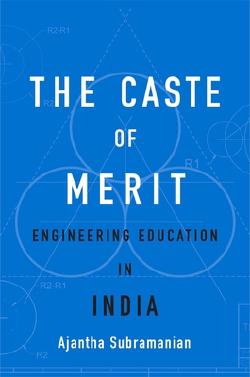
The Caste of Merit: Engineering Education in India
by Ajantha SubramanianA must read Not Very Challenging Long Read
Just as Americans least disadvantaged by racism are most likely to endorse their country as post‐racial, Indians who have benefited from their upper-caste affiliation rush to declare their country post‐caste. In The Caste of Merit, Ajantha Subramanian challenges this comfortable assumption by illuminating the controversial relationships among technical education, caste formation, and economic stratification in modern India. Through in-depth study of the elite Indian Institutes of Technology (IITs)—widely seen as symbols of national promise—she reveals the continued workings of upper-caste privilege within the most modern institutions.
Caste has not disappeared in India but instead acquired a disturbing invisibility—at least when it comes to the privileged. Only the lower castes invoke their affiliation in the political arena, to claim resources from the state. The upper castes discard such claims as backward, embarrassing, and unfair to those who have earned their position through hard work and talent.
Focusing on a long history of debates surrounding access to engineering education, Subramanian argues that such defenses of merit are themselves expressions of caste privilege. The case of the IITs shows how this ideal of meritocracy serves the reproduction of inequality, ensuring that social stratification remains endemic to contemporary democracies.
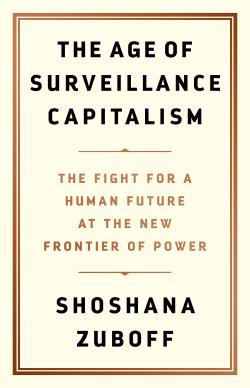
The Age of Surveillance Capitalism: The Fight for a Human Future at the New Frontier of Power
by Shoshana ZuboffA must read Challenging Read Long Read
The challenges to humanity posed by the digital future, the first detailed examination of the unprecedented form of power called “surveillance capitalism,” and the quest by powerful corporations to predict and control our behavior.
In this masterwork of original thinking and research, Shoshana Zuboff provides startling insights into the phenomenon that she has named surveillance capitalism. The stakes could not be higher: a global architecture of behavior modification threatens human nature in the twenty-first century just as industrial capitalism disfigured the natural world in the twentieth.
Zuboff vividly brings to life the consequences as surveillance capitalism advances from Silicon Valley into every economic sector. Vast wealth and power are accumulated in ominous new “behavioral futures markets,” where predictions about our behavior are bought and sold, and the production of goods and services is subordinated to a new “means of behavioral modification.”
The threat has shifted from a totalitarian Big Brother state to a ubiquitous digital architecture: a “Big Other” operating in the interests of surveillance capital. Here is the crucible of an unprecedented form of power marked by extreme concentrations of knowledge and free from democratic oversight. Zuboff’s comprehensive and moving analysis lays bare the threats to twenty-first century society: a controlled “hive” of total connection that seduces with promises of total certainty for maximum profit–at the expense of democracy, freedom, and our human future.
With little resistance from law or society, surveillance capitalism is on the verge of dominating the social order and shaping the digital future–if we let it.
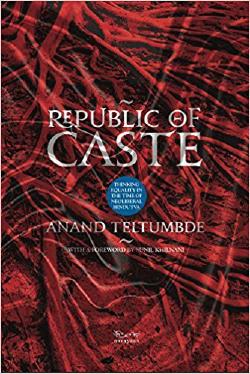
Republic of Caste: Thinking Equality in the Time of Neoliberal Hindutva
by Anand TeltumbdeA must read Challenging Read Long Read
Commanding in its scope, revelatory and unsparing in argument, Republic of Caste amounts to a new map of post-Independence India. Anand Teltumbde identifies the watershed moments of its journey: from the adoption of a flawed Constitution to the Green Revolution, the OBC upsurge, the rise of regional parties, and up to the nexus of neoliberalism and hindutva in the present day. Joining the dots between a wide range of events on the ground and the prevailing structure of power, he debunks the pieties of state and Constitution, political parties and identitarian rhetoric, to reveal the pernicious energies they have unleashed and their dire impact on India’s most marginalised people, the dalits.
The exclusion and disempowerment of dalits emerges as intrinsic to India’s republican system, whether expressed through state policies on education, agriculture and land ownership, or the tacit encouragement of caste embedded in both law and political practice. Here, the carrot of reservations comes with the stick of atrocities. As a politics of symbolism exploits the fissile nature of caste to devitalise India’s poorest whilst appropriating their votes, Teltumbde’s damning analysis also shows progressive politics a way out of the present impasse.
Anand Teltumbde is a civil rights activist and a columnist with the Economic & Political Weekly. Among his many books are Dalits: Past, Present and Future, Mahad: The Making of the First Dalit Revolt and The Persistence of Caste: The Khairlanji Murders and India’s Hidden Apartheid. He teaches at the Goa Institute of Management.
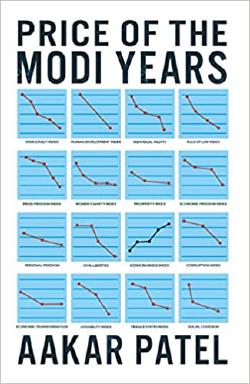
Price of the Modi Years
by Aakar PatelA must read Challenging Read Long Read
Columnist, author and political commentator, Aakar Patel has long been a close observer of the political scenario. In Price of the Modi Years, he seeks to explain the data and facts on India’s performance under Narendra Modi.
Modi’s predecessor as prime minister, Manmohan Singh, had once said that Modi would be a disaster as prime minister. This book shows how. It concedes Modi’s popularity; this is an accounting of the damage he has wrought. It is the history of India since 2014 assessing the damage across the polity from the economy, national security, federalism, foreign relations, legislations and the judiciary to media and civil society.
Our memories are not long, news cycles are transient and incidents are forgotten or misclassified as being only episodic, unless documented, unified and placed together as a record. And therefore this book—a history of these present times.
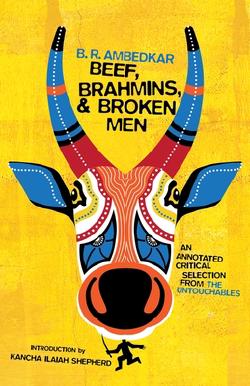
Beef, Brahmins, and Broken Men: An Annotated Critical Selection from The Untouchables
by B.R Ambedkar, Kancha Ilaiah (Introduction)A must read Easy Read Long Read
One of twentieth-century India’s great polymaths, statesmen, and militant philosophers of equality, B. R. Ambedkar spent his life battling Untouchability and instigating the end of the caste system. In his 1948 book The Untouchables , he sought to trace the origin of the Dalit caste. Beef, Brahmins, and Broken Men is an annotated selection from this work, just as relevant now, when the oppression of and discrimination against Dalits remains pervasive.
Ambedkar offers a deductive, and at times a speculative, history to propose a genealogy of Untouchability. He contends that modern-day Dalits are descendants of those Buddhists who were fenced out of caste society and rendered Untouchable by a resurgent Brahminism since the fourth century BCE. The Brahmins, whose Vedic cult originally involved the sacrifice of cows, adapted Buddhist ahimsa and vegetarianism to stigmatize outcaste Buddhists who were consumers of beef. The outcastes were soon relegated to the lowliest of occupations and prohibited from participation in civic life. To unearth this lost history, Ambedkar undertakes a forensic examination of a wide range of Brahminic literature. Heavily annotated with an emphasis on putting Ambedkar and recent scholarship into conversation, Beef, Brahmins, and Broken Men assumes urgency as India witnesses unprecedented violence against Dalits and Muslims in the name of cow protection.
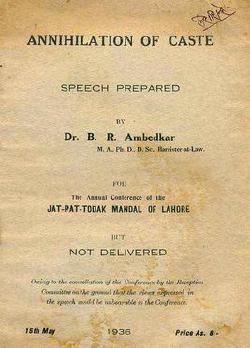
Annhilation of Caste
by B.R AmbedkarA must read Challenging Read Short Read
A timeless critique on the realities of caste in India. Caste is a 2000+ year old layered and hirearchical social seperation and discrimination of people. This undelivered speech by Dr B.R Ambedkar, highlights why caste is a social and politically irreprasable monster and why we need to eradicate it. Originally a speech prepared for an audience of caste Hindus who ultimately rejected it, the work evolved into a manifesto that challenged not only the oppressive structure of the caste system but also the foundations of Hinduism that sustain it. This speech was expected to be delivered in the year 1928, when the Indian freedom struggle was at its peak.
